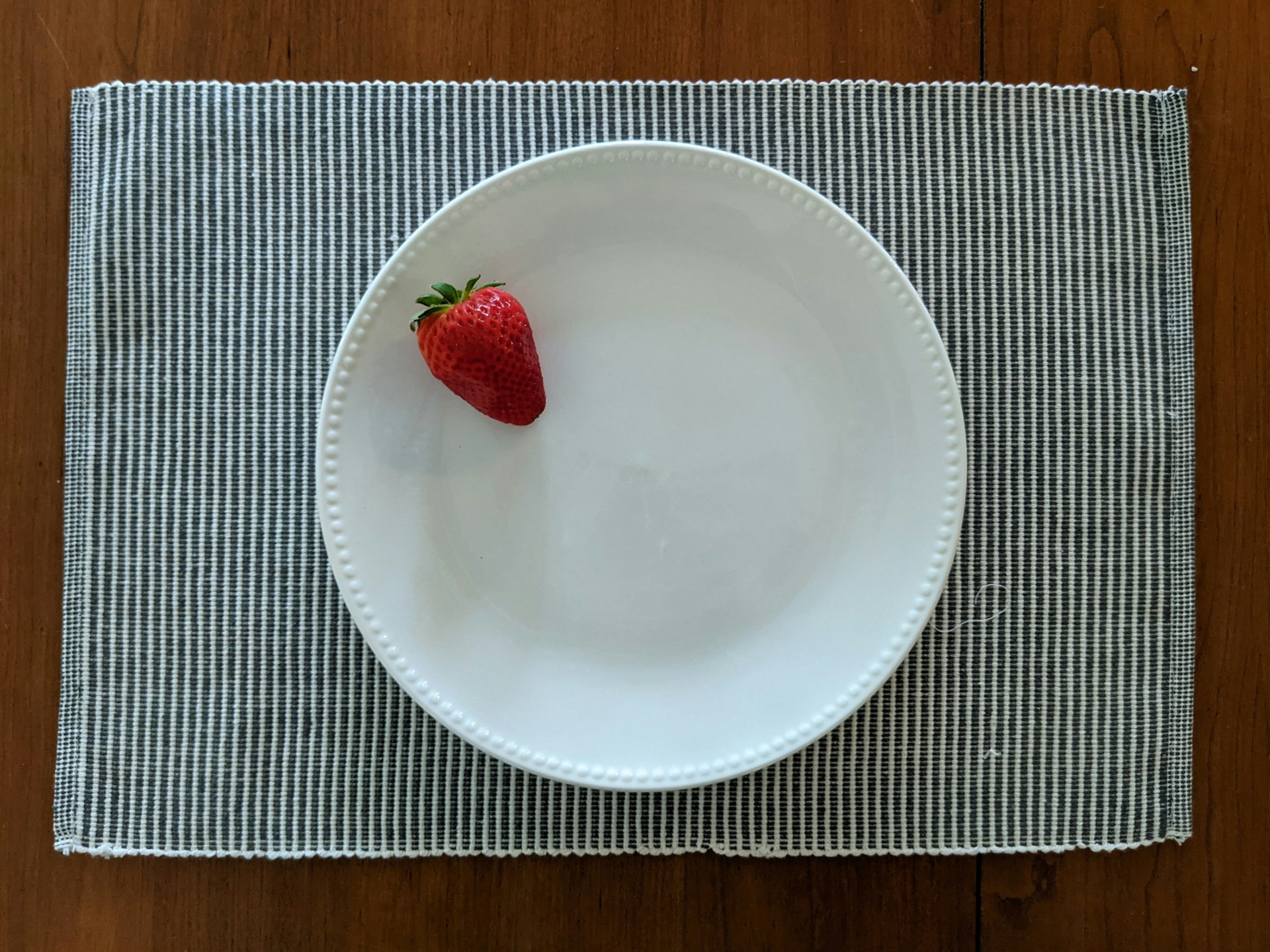Hoy en día, las personas que han luchado con la pérdida de peso y necesitan intervención médica para lograr el éxito tienen otras opciones además de la cirugía. Algunas de las opciones menos invasivas son los medicamentos recetados, que están disponibles desde hace poco tiempo.
A menudo recibimos preguntas sobre estos medicamentos, en particular sobre la semaglutida, bajo la marca Ozempic, porque se ha utilizado durante varios años para ayudar a las personas con diabetes de tipo 2 a controlar sus niveles de azúcar en sangre. Este mismo medicamento está ahora aprobado para el tratamiento de la obesidad y el control del peso bajo la marca Wegovy, y también está disponible en forma compuesta.
Hoy vamos a responder a unas cuantas preguntas que nos hacen a menudo y que en realidad son la misma pregunta, pero solo que formulada de forma diferente: "¿Por qué no me funciona la semaglutida?" o "¿Por qué no pierdo peso con Ozempic?". Hablaremos sobre algunas de las razones por las que puede estar experimentando resultados inesperados al usar semaglutida para perder peso, cómo manejar una meseta de semaglutida y algunas cosas importantes a tener en cuenta mientras navega por un viaje de pérdida de peso que incluye medicamentos recetados.
{{cta_button}}
¿Cómo se supone que funciona la semaglutida?
La semaglutida puede ayudar a perder peso porque imita una hormona llamada GLP-1 (péptido-1 similar al glucagón), que se produce de forma natural en el tubo digestivo cuando se come. Trabaja con el metabolismo para hacerlo más eficiente y mejora la regulación del apetito y los niveles de azúcar en sangre. Algunas de las formas en que ayuda a perder peso son:
- Ayuda a reducir el apetito: Se comunica con los receptores del cerebro para reducir la ansiedad por la comida y el hambre.
- Ralentiza la digestión: Hace que los alimentos permanezcan más tiempo en el estómago, lo que hace que te sientas lleno y satisfecho durante más tiempo, por lo que comes con menos frecuencia.
- Ayuda a mantener regulada la glucemia: Mejora la sensibilidad a la insulina y ayuda a estabilizar tus niveles de azúcar en sangre, lo que ayuda a tu cuerpo a quemar grasa para obtener energía en lugar de almacenarla y provocar un aumento de peso.
Por qué Ozempic (Semaglutida) podría no estar funcionando para usted
Puede que estés tomando la medicación equivocada para tiSi has estado tomando medicación para perder peso y te has preguntado: "Estoy tomando Ozempic y no pierdo peso; ¿qué pasa?". Es importante entender que los medicamentos funcionan de manera diferente para cada persona, por lo que si un medicamento no está funcionando para usted, puede ser necesario trabajar con su médico y encontrar otro que pueda ser más adecuado para sus necesidades y circunstancias.Todavía no ha alcanzado la "dosis efectiva" para ustedTodos los medicamentos GLP-1, incluyendo Ozempic, comienzan con una dosis baja, y luego esta dosis se incrementa hasta que se alcanza la "dosis efectiva", es decir, la dosis que desencadena la pérdida de peso para usted. Esto será diferente para cada persona; algunas pueden empezar a perder peso con la dosis más baja, y puede que nunca tengan que aumentar la dosis, y otras pueden tardar unos meses en empezar a ver la pérdida de peso hasta que hayan aumentado su dosis unas cuantas veces. No es inusual no ver ningún progreso en los primeros días cuando se empieza con las dosis más bajas de semaglutida.
El propósito de comenzar el tratamiento con una dosis baja es permitir que el cuerpo se acostumbre a la medicación y aliviar la gravedad de los efectos secundarios comunes como náuseas, vómitos y diarrea.
Necesitas darle tiempo a la medicación para que funcionePuede ser frustrante esforzarse y no ver resultados inmediatos cuando estás intentando perder peso. Es posible que haya leído afirmaciones en las redes sociales de personas que experimentan una rápida pérdida de peso, pero esto no es típico. El promedio de pérdida de peso para la mayoría de las personas es de alrededor de una a dos libras a la semana. Además, puede parecer que no está pasando nada en las primeras etapas de su viaje, pero es muy común sentirse hinchado y estreñido cuando se empieza a tomar la medicación. Puede que esté perdiendo peso y eliminando grasa, pero todavía no se refleja en la báscula.No está utilizando la medicación correctamenteSi no está utilizando la medicación tal y como se la recetó su médico, puede afectar a su ritmo de pérdida de peso. Se recomienda que, cuando utilice la inyección de semaglutida una vez a la semana, se la administre el mismo día de la semana y a la misma hora para obtener los mejores resultados.Está tomando otros medicamentos que interfierenA veces, los medicamentos habituales que toma pueden impedirle perder peso o incluso provocarle un aumento de peso. Cuando usted está discutiendo su programa de pérdida de peso con su médico, asegúrese de hacerles saber de cualquier medicamento que esté tomando o suplementos de hierbas que usted toma, para que puedan tener esto en cuenta al elegir la pérdida de peso correcta prescripción de medicamentos para you.You están esperando que el medicamento para hacer todo el workIn order para Ozempic para trabajar más eficazmente, su cuerpo debe estar en un déficit de calorías, por lo que si usted no ha reducido su consumo de calorías desde que comenzó su medicación, usted no experimentará la pérdida de peso. Debe analizar su rutina diaria y determinar si ha realizado los cambios de estilo de vida necesarios para promover la pérdida de peso. Vigilar su ingesta de calorías y aumentar su actividad física son dos elementos clave que pueden marcar una gran diferencia en los resultados de su pérdida de peso.Estrés crónicoMuchas personas no se dan cuenta de que el estrés no controlado puede frustrar cualquier intento de pérdida de peso y, de hecho, provocar un aumento de peso. El exceso de estrés hace que su cuerpo produzca una hormona llamada cortisol, que envía señales a su cuerpo que necesita para entrar en el modo de lucha o huida, y su cuerpo comienza a almacenar grasa deliberadamente. Es importante encontrar una actividad o alguna manera de aliviar la mayor parte de su estrés sobre una base regular para reducir los niveles de cortisol en su cuerpo.Sueño inadecuadoOtra cosa clave que puede afectar a lo bien que su cuerpo responde a un programa de pérdida de peso es la cantidad de sueño que usted consigue cada noche. No conseguir una cantidad adecuada de sueño puede causar que su cuerpo desarrolle un desequilibrio en las hormonas leptina y grelina, que puede conducir a comer en exceso y los antojos de alimentos poco saludables. También puede reducir la eficiencia de tu metabolismo y dificultar que tu cuerpo alcance el déficit calórico que necesita para perder grasa. La falta de sueño le deja fatigado, lo que puede afectar a la toma de decisiones, y usted es más propenso a comer bocadillos poco saludables y menos propensos a conseguir en su actividad física para el día si usted está overtired.Underlying ConditionsSometimes individuos tienen condiciones subyacentes, tales como una condición de la tiroides, el síndrome de ovario poliquístico, un desequilibrio hormonal, etc, lo que hace más difícil para ellos perder peso. Trabajar con un experto en medicina de la obesidad como el Dr. Steven Batash ayudará a descubrir y superar estos desafíos.
{{cta_small}}
Aspectos a tener en cuenta
- Colabore estrechamente con su médico: Si crees que tu Ozempic ya no funciona, es importante que hables con tu médico para que pueda ajustar tu programa de pérdida de peso, la dosis o cambiar tu medicación si es necesario.
- Perder peso lentamente es más sostenible: Los expertos coinciden en que perder peso más lentamente es mucho más seguro que someterse a una pérdida de peso rápida. También es más fácil mantener un peso saludable cuando el proceso no es demasiado rápido. También hay menos efectos secundarios, como la caída del cabello o los cálculos biliares, asociados a una pérdida de peso más lenta.
- Mantenga su masa muscular: Mientras crea su déficit calórico, debe tener en cuenta que no quiere perder músculo mientras quema grasa. Para evitar que esto suceda, es importante asegurarse de que está comiendo suficientes proteínas, y desea incluir el entrenamiento de resistencia en su rutina de ejercicios. Los músculos pesan más que la grasa, y también ayudan a quemar grasa a un ritmo más rápido. Tenga en cuenta que si está haciendo esto correctamente, puede estar perdiendo centímetros en ciertos lugares pero ganando músculo, por lo que la báscula puede no reflejar la pérdida de peso.
- Los estancamientos en la pérdida de peso son normales: En algún momento durante su viaje de pérdida de peso, usted, como todo el mundo, probablemente alcanzará una meseta. Si se da cuenta de que ha llegado a una meseta de semaglutida y ya no pierde peso, es el momento de hablar con su médico y su equipo de pérdida de peso sobre los pasos estratégicos que puede dar para llegar con éxito al otro lado de la meseta. Esto puede ocurrir porque su cuerpo está intentando adaptarse a su menor ingesta de calorías ralentizando su metabolismo. Su cuerpo también puede sufrir algunos cambios hormonales que le hagan sentir más hambre y menos satisfecho. Es especialmente importante que te mantengas fuerte durante estos periodos de inactividad y que mantengas tu rutina de ejercicios para aumentar la masa muscular y ayudar así a que tu metabolismo se ponga al día.
¿Cómo puedo hacer que Semaglutida funcione mejor?
Dependiendo de sus objetivos de pérdida de peso, podría beneficiarse del uso de semaglutida junto con un procedimiento no quirúrgico de pérdida de peso como Suture Sculpt ESG (gastroplastia endoscópica en manga). Este procedimiento ambulatorio reduce la capacidad disponible de su estómago mediante puntos estratégicamente colocados que se administran desde el interior. Se utiliza un endoscopio para acceder al estómago, por lo que no es necesario realizar incisiones abdominales ni permanecer en el hospital.
En un estudio clínicoque probó la eficacia de la combinación de semaglutida con ESG, el paciente medio perdió alrededor del 89% de su exceso de peso en sólo un año. Así que si usted está buscando maneras de acelerar la pérdida de peso en Ozempic, y usted tiene una cantidad significativa de peso a perder, programar una cita para hablar con el Dr. Batash en Batash Endoscopic Weight Loss Center en la ciudad de Nueva York.
Este centro de renombre mundial ha ayudado a personas de todas las profesiones y condiciones sociales y de muchos países diferentes a conseguir una pérdida de peso sostenible y una mejor calidad de vida. El Dr. Batash y su equipo de profesionales estarán con usted en cada paso del camino desde el inicio de su viaje de pérdida de peso y más allá. Haga de hoy el primer día en su camino hacia una mejor salud y concierte su consulta hoy mismo.
{{cta_button}}








